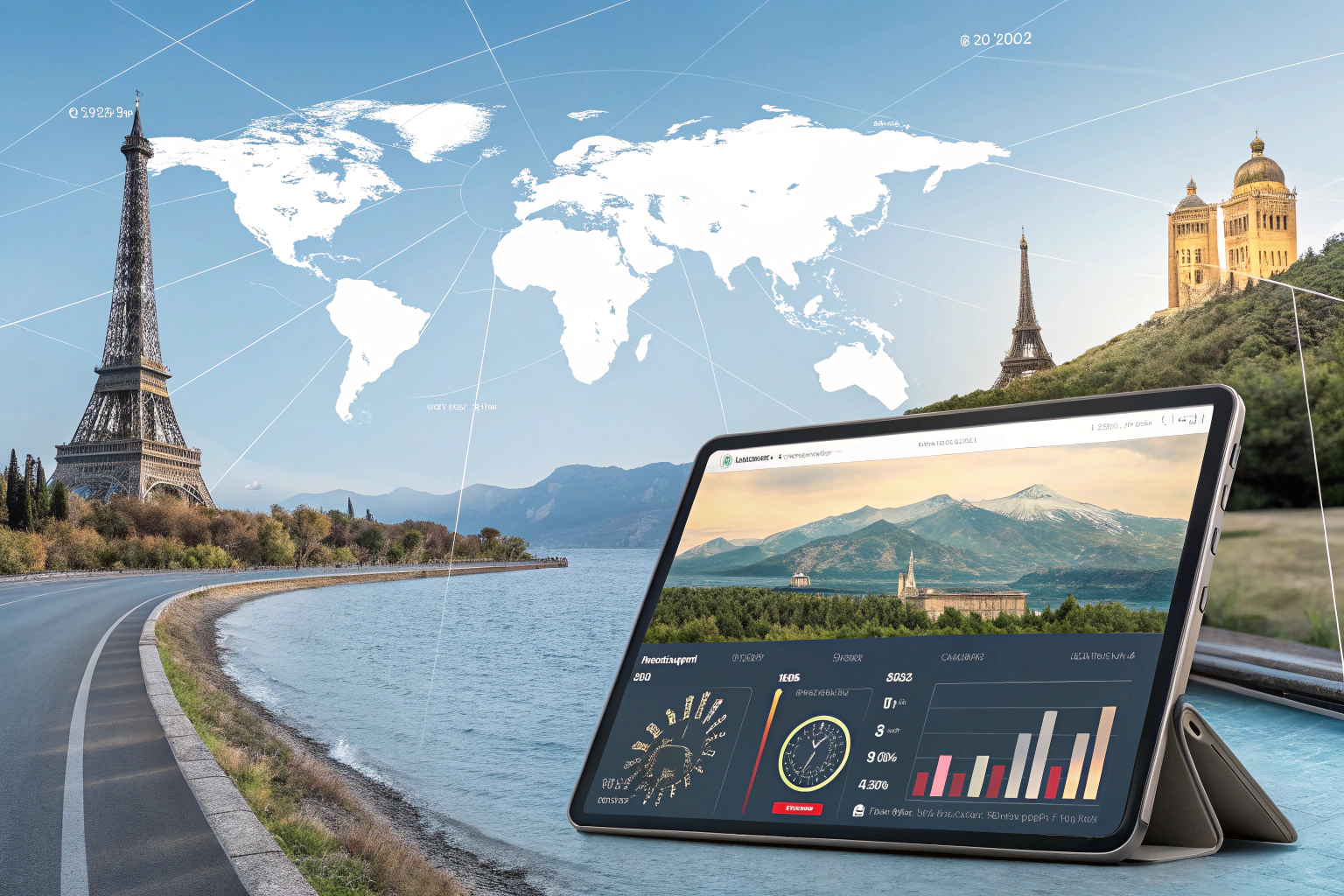- wp-user-a0hy
- 0 Comments
- 596 Views
AI is reshaping how the travel industry analyzes data. From understanding customer preferences to optimizing pricing strategies, AI tools help businesses make informed decisions. In this article, we explore how AI enhances travel data analytics and the benefits that come from these advancements.
The Role of AI in Understanding Customer Behavior
AI tools are changing how the travel industry understands customers. They collect and analyze data from various sources, like booking habits, social media, and survey responses. This analysis reveals customer preferences and behaviors in clear patterns.
For instance, AI can track what destinations are popular among different age groups or identify the facilities travelers prefer. By doing this, travel companies gain valuable insights into what their customers want. They can see which experiences lead to high satisfaction and repeat bookings.
Personalization is another key benefit. AI helps create tailored travel experiences based on individual preferences. If a customer loves adventure, AI can suggest hiking tours or thrilling activities. This personal touch boosts customer satisfaction and loyalty.
Using AI also saves time. It quickly processes large amounts of data. Instead of sifting through spreadsheets, travel agents can focus on what matters most: connecting with their customers.
By embracing AI, travel companies can better understand their audience and enhance the overall travel experience. This leads to happier customers and stronger relationships in the long run.
Optimizing Pricing Strategies with AI Analytics
AI plays a key role in setting smart prices for travel companies. By analyzing market trends and consumer behavior, businesses can respond quickly to changes. They can look at how demand shifts, how competitors price their offerings, and how past data shows what travelers prefer.
Dynamic pricing is one way AI makes this happen. This method changes prices based on current market conditions. For example, if a flight to a popular destination has low bookings, AI can lower the price to attract more customers. Conversely, if lots of people want to travel during a holiday, AI can raise prices to reflect that high demand.
Another example is hotel pricing. AI can track local events and adjust room rates dynamically. If a major concert is happening nearby, companies can increase prices knowing many travelers will look for accommodations. By being flexible and using data, travel businesses can maximize their profits while offering fair prices to customers. This is how AI makes pricing smarter in the travel sector. It helps companies stay competitive and better serve travelers.
Streamlining Operations through Automation
AI-driven automation significantly improves travel booking and customer service. By using advanced tools, companies can cut down on manual tasks. This saves time and reduces mistakes.
Chatbots play a big role in customer service. They can answer questions quickly, managing common inquiries without human help. This allows staff to focus on more complex issues. When a customer needs help, a chatbot can provide instant answers about bookings, policies, or changes. This speeds up the process and enhances customer satisfaction.
Booking systems powered by AI analyze data in real-time. They help travel agents find the best options for clients. These systems can compare prices and find the best routes within seconds. This not only improves accuracy but also helps agents offer better deals.
Another key tool is automated workflow software. This can manage schedule changes, cancellations, and payment processing. By automating these tasks, companies can boost their operational efficiency and reduce errors. When all these tools work together, they create a smoother travel experience for customers and agents alike.
Future Trends in Travel Data Analytics
As we look to the future, AI will shape travel data analytics even more. One major trend is the use of predictive analytics. This technology can look at past travel data to forecast future trends. For example, it can help predict which trips will be popular or when prices might rise. This helps companies make better decisions.
Another emerging trend is the use of natural language processing. This allows travel apps to understand and respond to user questions in a more human-like way. Travelers can get instant information, making planning easier and more enjoyable.
Personalization is also set to improve. AI can analyze individual preferences. It can suggest trips, hotels, and activities tailored specifically to each traveler. This creates unique experiences for every person.
The rise of real-time data processing means that travelers will receive updates on their trips instantly. They can adjust plans on the fly, whether it’s finding a different route or changing a reservation.
Looking ahead, AI promises to make travel planning smarter and more enjoyable for everyone.
Final words
In summary, AI significantly improves travel data analytics by providing deeper insights into customer behavior, optimizing pricing, and enhancing operations. Embrace AI to stay competitive in the travel industry.





